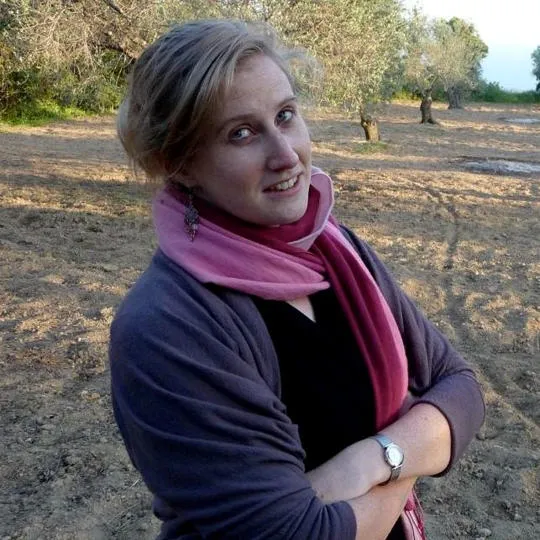
Dr Emily Pillinger
Reader in Classics and Interdisciplinary Humanities
Research interests
- Classics
Contact details
Biography
After completing an undergraduate degree in Classics at Oxford, I spent two years working as the Classics Teaching Fellow at Marlboro College, a small liberal arts college in Vermont (USA). I then moved to Princeton where I wrote my PhD on ancient female prophetic voices. Back in the UK, I spent a year as a fellow at Bristol's Institute of Greece, Rome and the Classical Tradition, then taught as a lecturer in Latin literature at Oxford for two years, before joining the Department of Classics at King’s in 2012. Since then my teaching and research has contributed to both the Classics and the Liberal Arts degree programmes, and I continue to shuttle happily back and forth between the departments of Classics and Interdisciplinary Humanities.
Research interests
- Music and the reception of Classics
- Creative practice in music as classical reception
- Ancient Greek and Latin poetry
My research stems from a fascination with language, translation, and forms of communication that transcend conventional boundaries. I have published on ancient Greek and Roman fiction about women with supernatural vocal powers, including prophets, witches, and ghosts. My book, Cassandra and the Poetics of Prophecy in Greek and Latin Literature (Cambridge 2019, now out in paperback), explores the riddling but highly creative speech of a mythic prophetess who was cursed to see into the future, but never to be believed.
More recently my research has turned to focus on how modern music can give ancient myths from Greece and Rome a contemporary and global relevance. With Miranda Stanyon I co-edited Music as Classical Reception: Amplifying Antiquity (Oxford 2025). I have also been studying how composing and performing music creates communities of creativity, healing, and activism, and was awarded a UKRI-AHRC Research Networking Grant for a creative practice as research project, 'Penelope's Web: the Opera'.
I would be delighted to supervise any doctoral work that focuses on musical receptions of Classics.
For more details please see my full research profile.
Teaching
I teach modules for the undergraduate and postgraduate degrees associated with the King’s departments of Classics and Interdisciplinary Humanities, including the MA in Global Cultures and the London intercollegiate MA in Classics. Some of my Classics modules involve reading ancient Latin texts in the original language, but most are about studying ancient Greek and Latin works in translation and situating them within their historical context. My Interdisciplinary Humanities teaching embraces the study of a range of cultural traditions and themes.
Expertise and public engagement
I have been involved in many outreach projects in collaboration with partners such as Radio 4, the Royal Opera House, English National Opera, the Glyndebourne Festival, Mumsnet Academy, and Eidolon online journal. I have collaborated with contemporary composers and librettists, and I run the website for the project 'Penelope's Web'.
I work closely with schools in the London area and beyond. I offer talks on A and AS level topics in Latin and Classical Civilisation, as well as more general talks on aspiring and applying to study at university.
Selected publications
- Music as Classical Reception: Amplifying Antiquity, ed. E. Pillinger and M. Stanyon. Oxford University Press (2025)
- Cassandra and the Poetics of Prophecy in Greek and Latin Literature. Cambridge University Press (2019, paperback 2022)
- ‘The music of Iannis Xenakis’ estranged Kassandra’, Classical Receptions Journal 14.1 (2022) pp. 70-88
- ‘Homer “viewed from the corridor”: epic refracted in Michael Tippett’s King Priam’, in Epic Performances from the Middle Ages into the Twenty-First Century, ed. F. Macintosh, J. McConnell, S. Harrison and C. Kenwood. Oxford University Press (2018) pp. 289-304
- ‘Finding asylum for Virginia Woolf’s classical visions’, in V. Zajko and H. Hoyle (eds.) Handbook to the Reception of Classical Mythology. Wiley Blackwell (2017) pp. 271-84
- ‘Inventa est blandae rationis imago: Visualizing the Mausoleum of the Flavii’, Transactions of the American Philological Association 143 (2013) pp. 171-211
Research
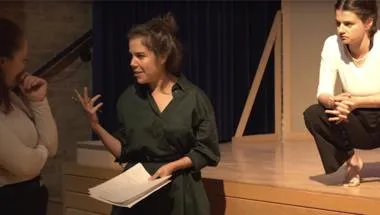
Penelope's Web: enhancing contemporary opera’s representation of ancient myth
Exploring the power of ancient Greek myth through modern music composition and education, using an innovative programme of collaborative workshops.
Project status: Ongoing
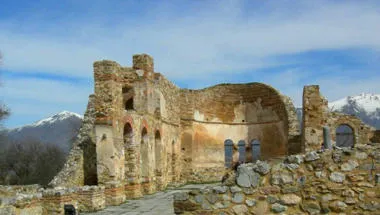
Centre for Hellenic Studies
The Centre for Hellenic Studies is a unique grouping of academics with interests and expertise covering more than three millennia, from Aegean prehistory to the history, language, literature and culture of Greece, Cyprus and the worldwide Greek diaspora today.

presentPasts
Across the Faculty of Arts & Humanities, King’s academics study cultural interactions across time and the transhistorical traditions that often frame, foster, and shape them.
News
New book explores how music, from opera to hip-hop, has been inspired by ancient Greece and Rome
Dr Emily Pillinger publishes Music as Classical Reception: Amplifying Antiquity with Dr Miranda Stanyon.

'I aim to inspire a deeper dialogue' — MA student's art on show at international exhibition
Odette Valero, a student on the Global Cultures MA in the Faculty of Arts & Humanities, has been selected to display work at the Embracing Our Differences...
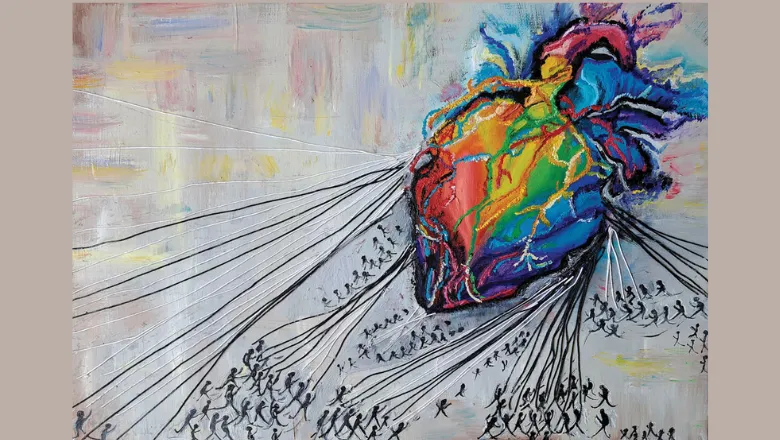
Spotlight
Letters of Refuge: connecting the ancient and the contemporary
In this Spotlight on Arts & Humanities, we detail the project that details what connects people across millennia — the search for shelter from war.

Penelope's Opera: amplifying the unheard voices of ancient Greek myth
In the latest Spotlight on Arts & Humanities, we look at the work of Dr Emily Pillinger, who works in the Department of Classics and in the Department of...
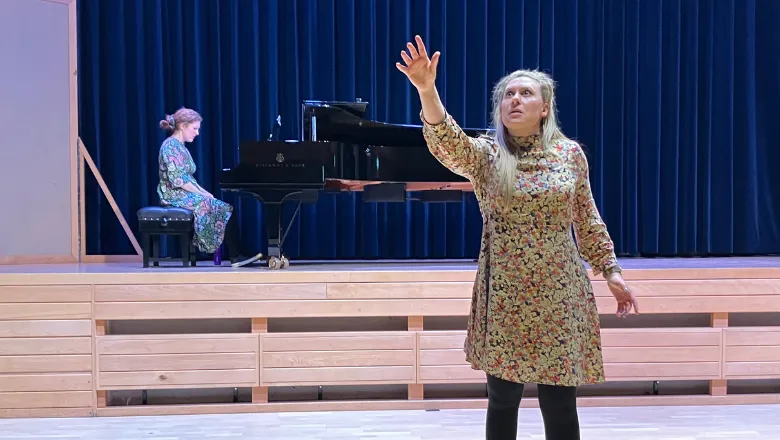
Research

Penelope's Web: enhancing contemporary opera’s representation of ancient myth
Exploring the power of ancient Greek myth through modern music composition and education, using an innovative programme of collaborative workshops.
Project status: Ongoing

Centre for Hellenic Studies
The Centre for Hellenic Studies is a unique grouping of academics with interests and expertise covering more than three millennia, from Aegean prehistory to the history, language, literature and culture of Greece, Cyprus and the worldwide Greek diaspora today.

presentPasts
Across the Faculty of Arts & Humanities, King’s academics study cultural interactions across time and the transhistorical traditions that often frame, foster, and shape them.
News
New book explores how music, from opera to hip-hop, has been inspired by ancient Greece and Rome
Dr Emily Pillinger publishes Music as Classical Reception: Amplifying Antiquity with Dr Miranda Stanyon.

'I aim to inspire a deeper dialogue' — MA student's art on show at international exhibition
Odette Valero, a student on the Global Cultures MA in the Faculty of Arts & Humanities, has been selected to display work at the Embracing Our Differences...

Spotlight
Letters of Refuge: connecting the ancient and the contemporary
In this Spotlight on Arts & Humanities, we detail the project that details what connects people across millennia — the search for shelter from war.

Penelope's Opera: amplifying the unheard voices of ancient Greek myth
In the latest Spotlight on Arts & Humanities, we look at the work of Dr Emily Pillinger, who works in the Department of Classics and in the Department of...

